BvS will be remembered as a misunderstood classic.
This is too good.
BvS will be remembered as a misunderstood classic.
BvS will be remembered as a misunderstood classic.
Still haven't seen it. I might if there's a Rifftrax or some other equivalent commentary track.
Any recs?
I guess I wasn't clear-I was more or less categorizing those two points under the "things we already knew and more of it diidn't really change the movie" line. When I said Lois could refute the woman's witness testimony, I was saying why her role wasn't really important or how it changed the dynamics of the set up. The entire set up makes no sense so expanding on the epiphenomena of what follows that plot really seems inconsequential in alleviating the underlying issue in the first place. Thats removed from subjective taste-I'm not basing my assessment of whether or not it makes sense due to how much I liked it. Having a witness confess that superman was responsbile for the village could be directly refuted by people who were there (lois) AND paints superman as a gun totting thug which everyone already knows isn't something he does.
Him saving people helped make him look more like then superman weve all become accustomed to I don't disagree; but this is like a bare minimum requirement for the character and I would *subjectively* argue that it doesn't really enhance his character to the point of overlooking the rest of the film and his actions.
So yes I am looking for conversation and i'm unsure why people keep having this antagonistic response to my posts. Am I coming off combative? If so I'm not trying to. I genuinely want people to point out how the newly added scenes "fixed" the probelms of the movie-which isn't a matter of taste by the way. Whether or not you like it really doesn't effect that the entire set up to the court hearing by framing superman for shooting terrorists to save a nationally renowned journalist (who is also white woman) is absolutely preposterous no matter what way you look at it. The cia knew she was there/he was there, she could have testified he didn't do it in response to some random woman's testimony, all the while lois finds out lex is behind it.
If there is more to discuss I am more than happy to discuss it and am in no way looking to argue about the quality of it-only whether this actually fixes the mistakes in the story. I don't think my stance is unreasonable with regards to that set up.
I gotta ask, Are some people refusing to watch the Ultimate edition?
Not refusing, I have already bought it once it passed a reasonable price, but when I am thinking about watching it when someone for example posts the one great Wonder Woman gif, I am always like "naaah, not wanna waste over three hours on that again right now"
It really is an amazing improvement.
Lex's motivation is jealousy with a bit of a general hatred for men with power. Superman is a man with power he didn't earn. Double whammy for DCEU Lex. In the comics it's a bit more fleshed out because Lex believes he should be recognized the way Superman is and feels he clawed and scratched for everything he has. It's just plain ol' jealousy for DCEU Lex. This is why Lex says "They need to see the fraud you are."
And obviously he's nuts. An interesting note is Lex's weird little idiosyncrasies are nearly absent in the beginning in the movie and progressively get worse as the movie goes on. He's breaking down as more of his plans unfolds until by the end of the movie he's a full on lunatic.
I wouldn't go so far as to say "amazing". Scenes flow better. Ideas from the theatrical version actually make some sense. Superman is a bit more "Superman" (in my time here on GAF I have concluded the majority opinion of Superman's preferred characterization here so when I say "bit" I do mean "bit"). Objectively it's just the more competent version of the movie. It does not fix everything and depending on what you liked and what you didn't like the UC could go either way for someone.
My advice to anyone who has only watched the Theatrical Cut and is even mildly curious about the longer cut: If you're dead set on disliking the movie for whatever reason (i.e: You despised what you have already seen/ You just don't really care one way or another/ You'd prefer to continue to hate it because you want the DCEU rebooted/ Your friends will laugh at you for being the odd duck that actually likes the movie/ You are not ready to gaze upon Batman's bare ass...) then don't waste your time. You can just watch both Dave Chappelle Netflix specials instead. And if you've already seen them then watch them again because they are that good and you know you were going to anyway.
Why does Batman torture Superman to death? Why not just straight up kill him?
Why is Batman even likeable in this movie? Because he had that one awesome fight scene? The guy is a lunatic with no disregard for collateral damage and the possibility of killing innocents with his careless rampaging ways.
And here he is condemning Superman to death penalty for his inadvertant actions resulting in the same collateral damage. What a hypocrite.
I gotta ask, Are some people refusing to watch the Ultimate edition?
You can just watch both Dave Chappelle Netflix specials instead. And if you've already seen them then watch them again because they are that good and you know you were going to anyway.
I gotta ask, Are some people refusing to watch the Ultimate edition?
I think some people have such a hard-on for Batman the ultimate hero that they can't even fathom him crossing the line. Take the Justice Lords Episode of JL, everything in that episode points to LORD BATMAN being the ultimate villain of that piece yet he comes out the hero. At the end of that episode League Batman should have said "We got played!" 1) He'd been on his own for a while, 2) He built the Dimensional teleporter to a dimension that just so happens to have a devise that can take away powers. Come on man, He set the whole thing up. Then took a Dive to League Batman to throw off suspicion. He's literally the most powerful person on his world now with an Army of Superman robot and no competition. All his villains have been Lobotomized. But Nope he's the Hero because Batman. Meanwhile they had Superman go No Fucks given evil because fuck you that's why. Look at Injustice. Batman cause Soooo many people to get killed yet comes out smelling like a rose even though it was Good Superman that ultimately saved the day (and he still gets punished with a kryptonite detonator next to his Heart while the other Batman gets access to more money then most first world nations) And Harley never pays for her crimes (Popularity guarantees Immunity! Would you like to know more.)
Why is Batman even likeable in this movie? Because he had that one awesome fight scene?
You Marvel plebeians don't know true kino.How did I miss this one? Sweet.
Why does Batman torture Superman to death? Why not just straight up kill him?
Why is Batman even likeable in this movie? Because he had that one awesome fight scene? The guy is a lunatic with no disregard for collateral damage and the possibility of killing innocents with his careless rampaging ways.
And here he is condemning Superman to death penalty for his inadvertant actions resulting in the same collateral damage. What a hypocrite.
So Trump is Batman?he just sits at home and gets mad at the TV and lets himself get manipulated by obvious anonymous letters. this is a Batman who supposedly is aged and grizzled and has faught the Riddler and all kinds of criminal masterminds. yet this obviously manipulative scheme , he is going to not question it at all.
If you want your no fucks given evil Batman than of course you have full-bore psychopathic Batman in the form of Owlman from Crisis on Two Earth. Dude almost blew up all reality as an expression of ego: "the only choice that really matters."
bc he has a few cool fight scenes. it doesn't matter that he's a complete idiot. the World's Greatest Detective is obsessively stalking Superman for a year and he doesn't even know Supes has human parents. he doesn't even bother investigating the crime scene that triggered Superman's congressional hearing.
he just sits at home and gets mad at the TV and lets himself get manipulated by obvious anonymous letters. this is a Batman who supposedly is aged and grizzled and has faught the Riddler and all kinds of criminal masterminds. yet this obviously manipulative scheme , he is going to not question it at all.
Batman's an idiot. Superman's emo.
The theatrical cut doesn't even give you a reason why the African lady is lying right? I'm still baffled by the decisions to cut what they did from the theatrical version.
The theatrical cut doesn't even give you a reason why the African lady is lying right? I'm still baffled by the decisions to cut what they did from the theatrical version.
The proper choice would have been to split it into two movies, cliffhang at the Doomsday introduction maybe. Don't reveal him in the trailers.
Then instead of Suicide Squad give us the proper Doomsday fight from the comics instead of giving him that artificial, escalating EMP-thing that forced a timer onto the fight. Push Suicide Squad to Christmas (it could have used a couple months more baketime for sure), then lead into Wonder Woman and Justice League this year.
After watching the Hobbit get blown up into a big multi-movie soupy mess, it's really frustrating to see the outlines of two possibly great movies mashed up together into one amalgam that audiences reviled. Lesson learned to take your fucking time because that's what got Marvel studios to where they are with their franchises.
Le sigh.
Thats because in the theatrical cut she wasnt lying.
The Ultimate Cut and Theatrical Cut have different plots.
I think there was 20 minutes they could have cut from the theatrical version that they could have replaced with stuff from the Ultimate version. If we were talking about changing it so much as to make it a two parter, I would have the movie rewritten pretty much from the ground up.
What was the name of that superfan from YouTube that would defend the ssnider-verse to the death? He would call everyone Marveltards and saw BVS like 20 times proudly showing his ticket stubs. Watching him was like slowly watching a comet impacting the earth's crust.
This is one of the most overlooked critics of the film i believe. For some reason, both fans and haters are ok with Batman being a xenophobic douchebag who won't use his detective skills to actually do his job.
The dude just goes through the motions and gets manipulated by everyone.
I'm going to ask again until I get an answer in this thread, in what way does the extended cut make the movie better or alleviate its problems, because ultimately it doesn't do any of that for me. Its just a longer BvS.
At the risk of poking an already aggravated bear, I also like to add that I notice that defenders don't usually like to talk about how BvS is meaningful. They usually try to talk about how BvS actually makes sense if you look at this flow chart or anything like that, but, for the sake of argument lets concede that BvS is perfectly coherent: What does this mean that the narrative is trying to depict? See, the only times I see fans of the Snyder verse actually try to write out why BvS tells a competent story, they only seem to find success with abstract symbolism. I can't find that 4 chan image that listed all the literary references, but you know what I mean. Batman makes a spear from kryptonite and Superman is god -> Ahab hunted Moby dick with a spear-ish kinda weapon and Moby Dick is a symbol of god. And people act like this superficial thematic similarity means that BvS itself is exploring similar depths (har, har) as Moby Dick. Another example is this Thesis on Man of Steel that basically argued that Superman's journey is a metaphor for the birthing process which...somehow made it good. Idk.
Point is, most film essays or analysis' or whatever, atleast the ones I find good, examine how the narrative grapples with a problem that, when broadened, can be related to every day issues. To use a quick example, Mad Max is significantly about toxic masculinity vs feminism. The culture that Immortan Joe cultivates values war and violence, death for glory and devalues both men and women as people, while the narrative, in paying careful attention to how it characterizes it's main characters, and especially how Nux, Furiosa, and Max's character arcs grow more and more personal as the film goes on, humanizes them and places value of them as people. It's an extremely simplified version, but the basic methodology is that while you can extrapolate larger themes that you relate to in life, the thing that makes it meaningful is that the characters themselves, Max, Furiosa, Nux and the Wives, are all living toxic masculinity vs feminism battle on a personal, humanistic level. Nobody needs to reference any kind of historical or literary third party to talk about the depth of the characters of Fury Road because the authenticity of their experience is all the depth we as the audience need, and we abstract those larger themes from that.
And I bring this all up because I've never seen anyone on the side of BvS actually defend it on it's own merits in terms of meaning. I've never heard anyone talk about how they believe in Batman's rage and fear of something he doesn't think he can handle or empathize with Superman's struggle of trying to live up living up to an ideal or, of course, decide to bond over having their mothers have the same name. And it's not like, in the abstract, that these distant themes can be made meaningful because they have before and BvS wouldn't be the first to work with them. And their very topical too! There IS a lot of Fear of the Other going around and has been since a long, long time ago, and every gaf member has atleast some sense of personal inadequancy (otherwise why would any of us be here amirite?).
But never the less, I haven't actually seen an analysis that just focused on why BvS was good just by how it showed who it's characters were on a specific level. It's like they put on beer goggles so you can kinda, sorta see elements of this and that and so on. But I can't think of a single essay tracks the characters and narrative arcs the way people have done with Fury Road or Force Awakens or even Civil War.
But never the less, I haven't actually seen an analysis that just focused on why BvS was good just by how it showed who it's characters were on a specific level. It's like they put on beer goggles so you can kinda, sorta see elements of this and that and so on. But I can't think of a single essay tracks the characters and narrative arcs the way people have done with Fury Road or Force Awakens or even Civil War.
Well I took a swing with Man of Steel, and I have plans for a BvS writeup. I'll let you know.
I can talk about what makes the Dark Knight great without uttering a word about Batman as a pop icon or his depictions, because there is a richness to the character in the movie by itself. That's what I'm getting at. Where is the praise for BvS or even MoS itself, rather than the things you can connect it to?
It's there, in the article, but it's not the only thing there. Who writes an article about a Batman movie with zero discussion of Batman in other media?
More to the point you ask for an essay, but then you don't have time to do more than skim. Then you want, like, a custom one, to specifications.
I'll pass on the assignment.
It's there, in the article, but it's not the only thing there. Who writes an article about a Batman movie with zero discussion of Batman in other media?
More to the point you ask for an essay, but then you don't have time to do more than skim. Then you want, like, a custom one, to specifications.
I'll pass on the assignment.
Man of Steel... substituted a reality with FBI agents grabbing Lois Lane to coerce the surrender of Superman to the U.S. Military to appease Zod's introductory demands. "You Are Not Alone" was not something humanity learned by meeting Superman in this movie. It was something Zod revealed, in a scene also applied towards the movie's marketing campaign. Man of Steel told the story of humanity's First Contact with alien life, and unlike every Superman movie before it, it undertook the mission with serious intent to show the ramifications. Man of Steel took us all the way back to a humanity that had no idea it was not alone in the universe, and introduced the world to Krypton, Zod, and Kal-El the refugee before they ever had a chance to meet Superman.
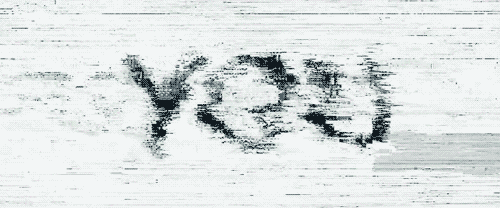
I found the "Close Encounters" moment an effective and interesting choice.
It is perhaps this intentional choice in the narrative, this thematic shift in the character's introduction to the rest of the world, which is at the heart of where this character's story has traveled in cinema since then. The darker tone of Snyder's efforts—launching this character into a series of movies that share cinematic mind-space with Batman films that played in modern and believable urban settings—necessitated coming to real grips with how we would respond not only to the presence of super-powered aliens from another planet, but the revelation that one had been secretly living among us.
The people of Metropolis, the people of Earth, don't know him or trust him. Neither, yet, does the audience. By the end of the movie, the story is supposed to carry us through this ordeal alongside this new hero, watching him sacrifice and fight for us and choose his home of Earth over a New Krypton, thereby teaching us to trust him.
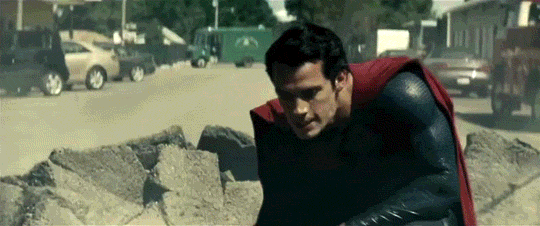
This scene right here was key, and we could have used more like it.
After the movie came out and people discussed it, there were some complaints about what effects this darker depiction had on the character, by being more grounded in the actual distrust, confusion, and fear that would be the response to Superman's emergence. Some of these complaints had real merit. Certainly the character arc of Johnathan Kent had a huge impact on this, ensuring that his adopted son Clark would keep his powers and identity completely hidden until he was revealed against his will. Suddenly Superman is transformed into a reluctant hero, and it is admittedly to the detriment of the character's heroic stature.
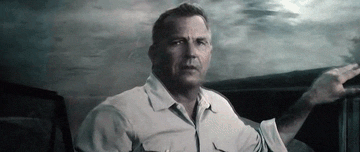
I shared many people's additional problem with Johnathan: his defiance of the laws of tornado wind physics.
Other criticisms, however, seemed without merit and unfair. Some fans complained that they never grew to trust the new incarnation of Superman. The destruction wrought on Metropolis before and during his final battle with General Zod, capped off by the conflict's conclusion wherein Zod forces Superman to kill the General by breaking his neck, was over the line, for them. "This is not my Superman," Adam Anklewicz writes on the "Never Had to Fight" blog, also decrying the prominent Sears, IHOP, and 7-11 product placement in the film. Other critics echoed the sentiment.
Some of this is simply misplaced nostalgia from the old movies, filmed when urban destruction due to a battle of super-beings was simply out of the budget. Some of it is due to false memories of the old films, in particular Superman II, and a Screenrant article by Kofi Outlaw does a fine job of pointing out the Man of Steel Ending Controversy & The Superman II Hypocrisy. Mr. Anklewicz can of course disown Man of Steel all he wants, be he could also do well to note that Superman II's limited urban destruction was almost completely limited to product placement.
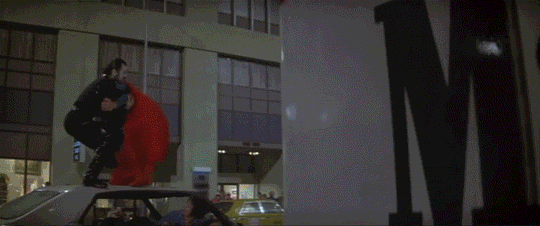
Not all Superman cinematic traditions are worthy of nostalgia.
As for my thoughts on the urban destruction, I was a longtime fan of DC animated TV series and animated movie treatments of the character, starting in 1996 with Bruce Timm's adaptation in Superman: the Animated Series, a follow-up to the successful Batman series. Technically I started with the Super-Friends treatment of the character, but Superman: The Animated Series, like the Batman series before it, really demonstrated what could be done with the character. For viewers like me, and readers of the comic in more recent years, Superman's destructive battle with Zod was familiar and welcome. Ironically these less photo-realistic mediums had already taken a more realistic look at the kind of collateral damage that would occur during a battle between super-powered beings. Animated Metropolis had super-beings punched through its buildings nearly every week.
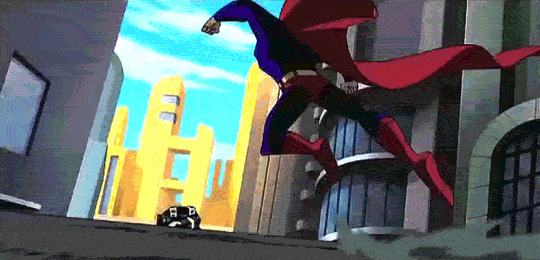
There were animated people in those animated buildings.
You simply can't expect a modern, realistic depiction of a living weapon like Superman to explore not only the fear of its power, but its realistic damage when unleashed. On the other hand, I agree with some of the points made by Superman: Birthright author Mark Waid assessment in his Thrillbent blog entry: Man of Steel, since you asked. I felt, like he did, that the hero role of the character of Superman lost a lot of the audience's trust when Metropolis was attacked by the Krytponian ship while the city's protector was overseas battling the confusing nanotech CGI soup world-builder.
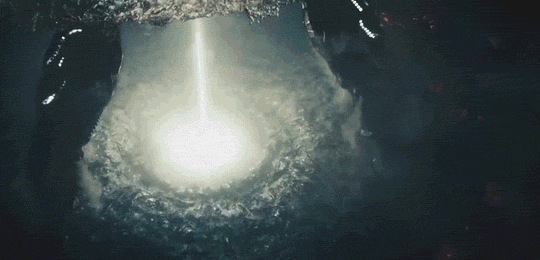
Meanwhile, across the world, Christopher Meloni finds a good death, and a lot of people in Metropolis find a bad one.
Superman saves Metropolis from the world-engine and somehow gets credit for it even as he was across the world battling CGI to do it. My wife would remind me at this point that at the conclusion of Superman Returns, I stated the movie was missing a battle with a giant robot. You'd therefore think I'd have liked this portion of Man of Steel, but too many crucial actions were happening while Superman was away from Metropolis. I'll even go one further than Waid did and state that it was a bad idea for Zod and his fellow Kryptonians to terraform a planet where, after a period of mild discomfort, they become essentially immortal and impervious gods with no lasting effects. Although the plundering of natural resources is a consistent theme in the movie beginning with its treatment of Krypton, applying it to Zod's motivations here just fails to make enough sense. It's dumb.
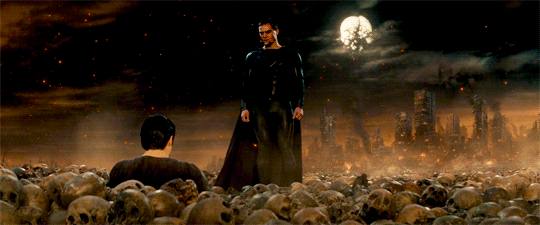
Also, Snyder should just avoid these dream sequence/psychic expositions,the one in Batman V. Superman was befuddling for the audience as well.
Replacing the Indian Ocean sequence with Superman focused on rescuing people from the destruction from the Kryptonian ship in Metropolis (which could have had nothing to do with terraforming) would have established Superman as protector. It would have earned him the later sequence, which I think Waid and others criticize unfairly, when Superman's final knock-down, drag-out fight with Zod further damages Metropolis.
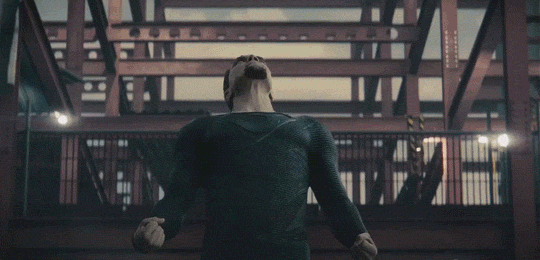
Witness the Man of Steel timing and pausing his punches to send Zod between and around the buildings of Metropolis.
At the time, Jordan Zakarin of Buzzfeed tracked down a disaster expert to estimate the damage to Metrolpolis (two trillion dollars is estimated, 129,000 dead), in an article that got quite a bit of reach and republishing links for the outlet: The Insane Destruction That The Final ”Man Of Steel" Battle Would Do To NYC, By The Numbers. Sadly this article and its republished versions all fail to make the distinction between the damage done to Metropolis by the world-engine while Superman was away (working as part of a plan to take out the two-pronged attack), and in the final battle with Zod.
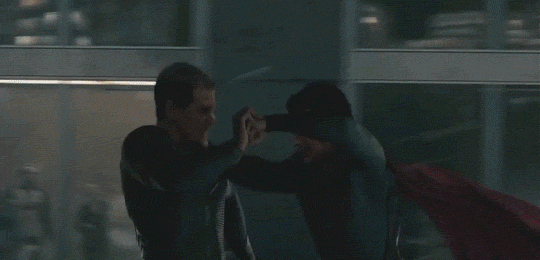
The battle where Zod is the one who destroys, by the way.
The Zod battle does less damage to the city, compared to the world-engine sequence. It winds up being the terraforming machine, by being both pointless and exceedingly destructive, that fuels the movie's reputation for Roland Emmerich-style "disaster porn" pointless destruction.
Marvel Studios has unleashed perhaps an equal cumulative share of individually lesser incidents of urban destruction in their films, running up through last year's airport battle in Captain America: Civil War. Fox's X-Men series persisted with somewhat tone-deaf massive destruction in the same year's X-Men: Apocalypse, which, admittedly may have been irrevocably painted into the Emmerich corner by its namesake. Sadly, in Man of Steel, its a plot contrivance that could easily have been avoided.
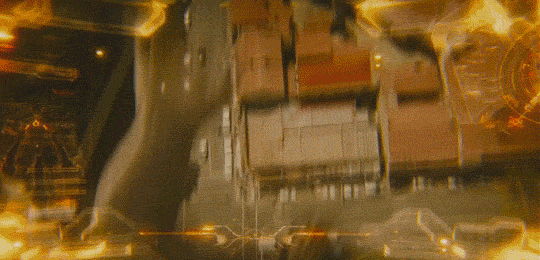
Let's have the realistic DC Cinematic Universe treatment, and also let the Marvel Cinematic Universe lull us happily into Good Times with empty buildings that collapse conveniently. ¿Por qué no los dos?
So Waid is dead-on in this regard: by being away during all that destruction, Superman certainly didn't earn the "He saved us" that Jenny utters to Perry White amidst the rubble before the final battle with Zod. But it is Mr. Waid's and others' most vehement criticism of the movie with which I most strenuously disagree: "Superman doesn't kill." I can't agree that his action at the end of the movie, killing Zod when faced with that as the only choice to protect innocent people, was wrong or out of character. Setting aside for the moment that the scene that drew the most complaints showed exactly what Waid as well as other critics had wanted—Superman saving people—I assert this:
Superman didn't kill General Zod. General Zod committed suicide by Superman...
I guess what I'm getting at here is that I don't think its fair to analyze Batman or Superman in BvS the way Veelk suggests he can do with Nolan's Batman. Neither character was presented in a way that had been done before in each character's cinematic history. Especially because we're still in the middle of it. Whereas you have a complete character arc for Nolan's Batman. So maybe that discussion is best saved for later.
But here's some of what Veelk asked for, extracted:
I agree. He reminded me more of Jim Carrey's Riddler then Lex Luthor.Eisenberg would've made a great Riddler
